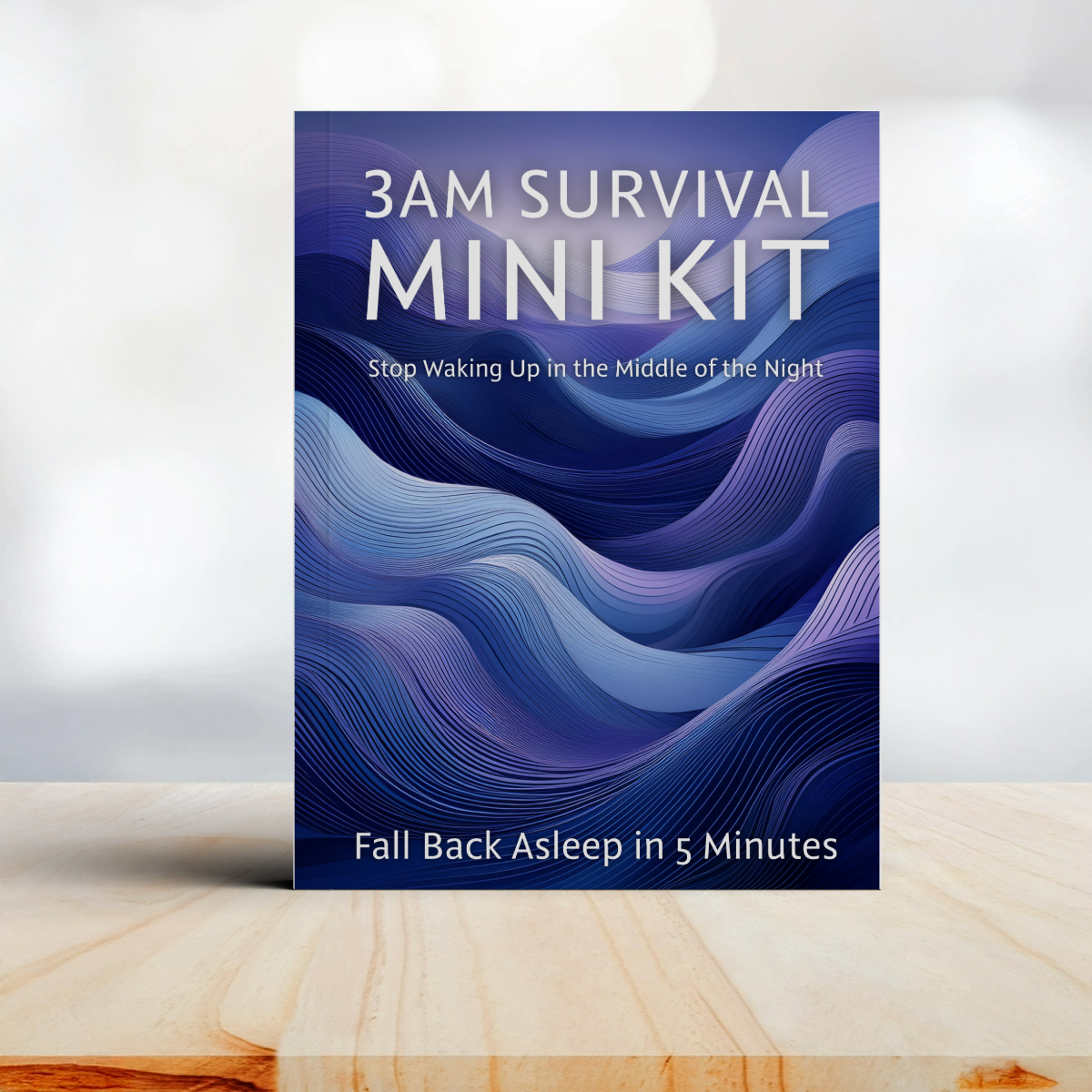Journaling Before Bed: A Pathway to Serenity and Mental Clarity
Published on August 13, 2025

Introduction
The act of journaling has been cherished through centuries as a profound expression of inner thoughts and emotions. Ancient philosophers, writers, and visionaries—from Marcus Aurelius to Virginia Woolf—have used journals not only as personal outlets but as tools for clarity, self-reflection, and emotional processing. In today's rapid and overstimulated world, journaling before bed isn't just a nostalgic nod to introspective traditions—it's a scientifically validated practice that can significantly improve mental well-being, enhance clarity, and support better sleep quality.
Modern neuroscience highlights that engaging in reflective writing before bed helps regulate emotional responses, quiet the amygdala (the brain's fear center), and activate the prefrontal cortex, which aids in rational thinking. This shift can be pivotal in calming a restless mind before sleep.
Benefits of Journaling for Mental Clarity and Anxiety

3AM Survival Mini Kit
Fall Back Asleep in 5 Minutes
A clear, no-nonsense guide that tells you exactly why you wake up at 3AM and what to do the moment it happens — so you can stop the adrenaline spike, calm your body, and fall back asleep within minutes. Every step is practical and designed to fix the problem right when it starts.
See What’s Inside – $4A growing body of research supports journaling as an effective therapeutic practice.
- A 2022 study in the Journal of Clinical Psychology found that participants who committed to nightly journaling experienced a 25% reduction in anxiety symptoms and a notable improvement in mood stability over four weeks.
- Neuroscientific evidence also suggests that transferring thoughts from mind to paper helps reduce cognitive load, allowing the brain to transition more easily into a restful state.
Why It Works
- Cognitive Offloading: Writing down worries acts as a "mental download," making them feel less overwhelming.
- Emotional Processing: Journaling facilitates the identification and reframing of intrusive thoughts.
- Sleep Priming: The relaxation induced by journaling can trigger the parasympathetic nervous system, preparing the body for rest.
Personal Experience
When insomnia gripped me relentlessly during my burnout phase, my mind felt like an unending carousel of anxious thoughts, spiraling out of control. Sleep was elusive; nights felt like battles. A dear friend suggested I try journaling before bed. At first, it seemed quaint—something for romantic souls or night owls. But within weeks, the practice evolved into my nightly sanctuary. My journal became a safe container for my worries, frustrations, and hopes. Slowly, my overactive mind began to quiet, and I found myself drifting into sleep with a sense of peace I hadn’t felt in months.
What to Write: Three Effective Approaches
1. Gratitude Journaling
- Focus on Positivity: List three to five things you're grateful for—big or small. This shifts your mental state from scarcity to abundance.
- Boost Happiness Hormones: Positive reflection increases dopamine and serotonin levels, fostering a sense of contentment.
2. Brain Dump
- Clear Your Mind: Write whatever comes to mind without editing. Let it be messy—clarity comes later.
- Quiet the Mind’s Chatter: When your fears and tasks are "stored" on paper, your brain doesn’t need to keep rehearsing them.
3. Setting Intentions
- Prepare for Tomorrow: Write down goals, affirmations, or reminders.
- Enhance Self-Awareness: Reflection helps counter unproductive nighttime ruminating.
Tip: If you struggle to start, try prompts like:
- “Today, I felt most at peace when…”
- “The one thing I want to let go of before sleeping is…”
- “Tomorrow, I will focus on…”
How to Make It a Sustainable Habit
- Set a Consistent Time: Align journaling with your other evening rituals. Pair it with relaxing activities like the Science of Warm Baths Before Bed: Unlocking Deep Sleep Naturally.
- Start Small: Commit to just 5 minutes. Gradual consistency beats overambitious beginnings.
- Create a Ritual Space: Use a dedicated notebook, pen, or digital space, and combine it with calming cues such as herbal tea, soft lighting, or gentle background music.
- Pair with Mindfulness: Integrate techniques from Harnessing the Power of Breathwork to Fall Asleep Faster to enhance relaxation.
Choosing the Right Format
| Format | Best For | Pros | Cons |
|---|---|---|---|
| Pen & Paper | Slowing down thoughts | Tactile, intimate, no distractions | Less portable, no search function |
| Digital Journals | Organization & accessibility | Searchable, can include photos, flexible formats | Risk of device distractions |
| Voice Journals | Quick thought capture | Hands-free, ideal for tired evenings | Less private in shared spaces |
Practical Tip: If you’re unsure which format suits you, experiment for a week with each and see which you naturally return to.
Pairing Journaling with Wind-Down Techniques
Enhance the benefits of journaling by combining it with other sleep-promoting habits:
- Breathwork: Use calming breathing exercises from Harnessing the Power of Breathwork to Fall Asleep Faster right after you finish writing.
- Red Light Therapy: Soft, warm lighting can signal to your brain that it’s time to wind down—explore Can Red Light Therapy Improve Sleep? Exploring the Science and Practical Tips.
- Aromatherapy: Diffuse lavender or chamomile essential oil to deepen relaxation.
Common Mistakes to Avoid
- Turning It Into a To-Do List: This can stimulate your brain instead of calming it.
- Overthinking Grammar or Structure: The goal is emotional clarity, not literary perfection.
- Writing Too Close to Sleep: Finish journaling at least 15 minutes before bedtime to let your mind settle.
Conclusion
The gentle act of journaling before bed is more than a wellness trend—it’s a timeless practice with measurable benefits for mental clarity, emotional regulation, and sleep quality. It creates a bridge from chaos to calm, allowing you to step into the night unburdened.
Remember: the value of journaling lies in authenticity, not perfection. Your words don’t need to be eloquent—they just need to be yours.
Additional Resources:
Frequently Asked Questions
Martin Lain — Sleep Researcher & Creator of SleepCureAI
Martin Lain combines modern sleep science, circadian-rhythm research, TCM-inspired insights, and AI-based pattern analysis to help people understand their sleep more deeply. His work integrates gentle nighttime rituals, nervous system regulation, and data-driven tools.
Medically Reviewed by
Dr. Mei Lin, DACM – TCM Sleep Medicine Specialist
(Editorial Medical Reviewer Persona)
Dr. Mei Lin is an editorial medical reviewer specializing in Traditional Chinese Medicine. Her expertise focuses on the relationship between Yin–Yang balance, Shen (Heart spirit), Liver Qi regulation, and the Kidney's role in nighttime restoration. Her review ensures that SleepCureAI articles align with foundational TCM sleep principles and classical physiological patterns described in traditional sources.
- Yin deficiency and difficulty sleeping
- Liver Qi stagnation and 1–3AM wake-ups
- Kidney Yin and nighttime restoration
This reviewer profile represents an editorial medical persona used for accuracy review of TCM-related sleep concepts.
Reviewed by SleepCureAI Sleep Engine (Beta)
A machine-learning model trained on circadian rhythm science, Traditional Chinese Medicine sleep physiology, and behavioral sleep optimization frameworks. This system reviews each article for timing accuracy, emotional–physiological coherence, and alignment with safe sleep practices.
- Circadian rhythm consistency
- Nervous system safety & regulation insights
- TCM coherence (Yin–Yang, Liver Qi, Shen)
- Evidence-based lifestyle recommendations
Disclaimer: This AI system does not diagnose medical conditions and does not replace professional care.